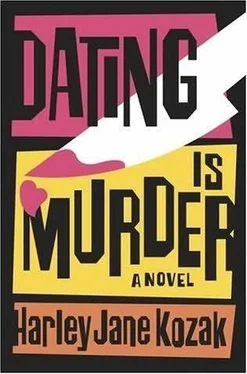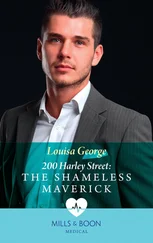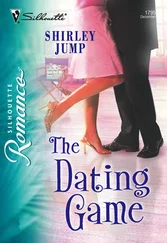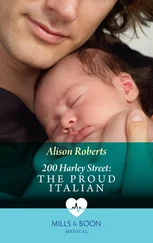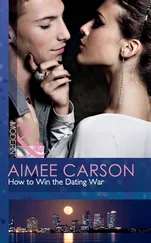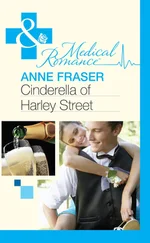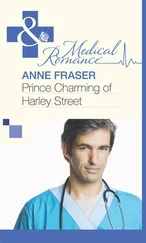
Harley Jane Kozak
Dating Is Murder
The second book in the Wollie Shelley Mystery series, 2005
For my mother,
Dorothy Taraldsen Kozak,
who would’ve gone to the ends of the earth for
us… and no doubt still does.
“ Moth harmonica.”
That’s what it sounded like, the guttural, heavy-accented syllables coming through my answering machine. A piece of haiku, until the woman rattled off an almost unintelligible series of digits that went on and on, like a credit card number or the miles from earth to Jupiter. I picked up the telephone.
“Hi, this is Wollie,” I said. “Who’s this?”
“ California? America? Ja?”
“Yes, California, America. Who’s this?”
“Encino?”
“No, not Encino, West Hollywood. Forty minutes away, traffic permitting. Who’s this?”
“ Ja, ja, who this?” she asked.
“That’s what I’m asking,” I said. “Who are you?”
“I am Moth Harmonica.”
Okay, I’ve heard worse. My own name, Wollstonecraft Shelley, is no picnic, especially for a girl. Or woman, as my friend Fredreeq insists I refer to myself. “Who are you trying to call, Moth?” I asked.
“Who are you?”
“No, who are-” I stopped. This could take a while, and I didn’t have a while. “I think you have the wrong number,” I said, and this brought forth a flurry of words that started with “Nein! Nein!” and ended with “Annika.”
“Annika?” I said. “Wait. Not moth-you’re-mother. Of Annika. You’re Mrs. Glück?”
There was an excited assent, lots of Ja! Ja!s, and another flurry of words. I closed my eyes and took a deep breath, trying to dispel a sudden bad feeling.
“ Meine Annika,” Mrs. Glück said, “called not tomorrow-no, no, yesterday-and yesterday is Sunday, we call every week Sunday. So I leave message for host family, but called me not back. I feel for Annika Gefahr, um, danger, sie ist in big danger, as sie call not Sunday.”
I was nodding now. My friend Annika had called her mother from my apartment the previous week. “She would freak out if I did not call each Sunday,” Annika had said. “But she will call me back so it will not be on your bill.” Which was why Mrs. Glück had my number.
I said, “I’d really like to help you, but I have no idea where Annika is. She’s tutoring me in math, and we were supposed to meet last night”-I hesitated, not wanting to admit how I’d worried, thinking, Annika’s never even late- “and she didn’t show.”
“Ah, Gott im Himmel, sie is dead.”
“No, I’m sure she’s not dead, I’m sure she’s-” The doorbell rang. “Can you hold on?”
I zipped through the kitchen and living room and opened the door to Fredreeq, told her to give me two minutes, and zipped back to the kitchen. “Mrs. Glück?” I said. “I’m sure Annika will turn up, and if I hear from her first-”
“ Nein, nein, for me you must to find her. The host family call me not back, and the agency call me not back, no one in United States of America to-”
“But if she’s really missing, I’m sure her host family will contact the police-”
“ Nein, no Polizei, no trouble-you are friend, ja ? So you are to ask host family what is happen. For my daughter. Mein Kind.”
Fredreeq, having followed me into the kitchen, pointed to her watch and mouthed the words “Joey” and “double-parked.” I nodded and waved her off. “Okay,” I said. “Do you have the host family’s number? All I have is Annika’s line, with her machine.” On which I’d already left two messages.
Minutes later I hung up and turned to Fredreeq, who was studying the contents of my refrigerator. It was early evening in late November, dark in my kitchen, but my friend was illuminated by the utility bulb. It was enough. She wore a tight, fringed jumpsuit in hot pink, low-cut with a big plastic zipper running the length of it. She had the kind of va-va-va-boom body that could pull this off, and the kind of temperament that would want to. Her hair this week was as blond as mine, not unusual in Los Angeles, but whereas I had pale skin to go with it, Fredreeq was black, a less common combination. “Where’s your water?” she asked.
“In the sink.”
“You don’t have bottled water? What do you take on the road?”
“I don’t take water on the road.”
“Sister, you have got to change your ways,” she said, herding me into the living room. “You have cosmetic responsibilities now. Who is this Monica person?”
“Annika, not Monica. Our Annika, from the show. Her mother in Germany says she’s-disappeared.” I grabbed my keys and backpack, alarmed at the word I’d just said.
“And who does the mother think you are, the FBI?”
“She doesn’t know who I am, she just happened to have my phone number. She can’t reach the host family-Annika’s an au pair, did you know that?”
Fredreeq handed me my jean jacket. “What are you doing answering your own phone? We gotta get you thinking like a celebrity.”
The word “celebrity” made me want to hide under the bed with a bag of Oreos. But Fredreeq had overstated it. I was only a celebrity to those rare people who watched a TV reality show called Biological Clock-too few in number, according to the Nielsen ratings, to materially affect my life. I reminded myself of this as I followed Fredreeq out of the apartment, down the stairs, and out to the street.
Rush-hour noise from Santa Monica Boulevard accosted us. There was pedestrian traffic too as we walked down Larrabee, mostly male, as befits a neighborhood known as Boystown. Fredreeq attracted her share of attention, her skintight jumpsuit an object of desire. West Hollywood is a bastion of gay and lesbian culture, which I, as a heterosexual female, found comforting in ways I didn’t exactly understand.
I caught myself really looking at people, on the street, in cars. Looking, illogically, maybe, for someone considerably shorter than I, brown-haired, apple-cheeked, pretty. A girl in the last days of her teens. Annika.
“There’s Joey,” Fredreeq said, waving to a green Mercedes stuck in slow traffic on Santa Monica, a mass of red hair visible in the driver’s seat. “What’s she doing circling the block? I told her to stay put. C’mon, let’s catch up.” She grabbed my hand and we ran as fast as her three-inch heels allowed, click-click-clicking our way to Joey.
My friends were driving me to the night’s location of Biological Clock. The reality show featured three women d’un certain âge, as Joey put it, dating in rotation three men of various ages, so the TV audience could ultimately vote on which combination of genes should produce a child, with or without romantic involvement on the part of the chosen couple. I was one of the women.
It hadn’t been my idea.
Here’s how it happened. I’d been-okay, still was-recovering from a broken engagement to a guy named Doc. Doc had some issues that stood between him and marriage, namely, a wife and the certainty of an ugly custody battle for their daughter, Ruby, once the wife became an ex-wife. The wife was keeping Ruby in Japan, so Doc had taken a job in Taiwan to be nearby, production work on an American film called Mao, the Movie, which threatened to go on as long as the Cultural Revolution. Custody would be a problem for six years, until Ruby turned eighteen, and Doc felt I shouldn’t wait for him. Joey and Fredreeq agreed. I felt otherwise, but nobody seemed to care about my opinions any more than Chairman Mao had cared about the opinions of the bourgeoisie.
Читать дальше
